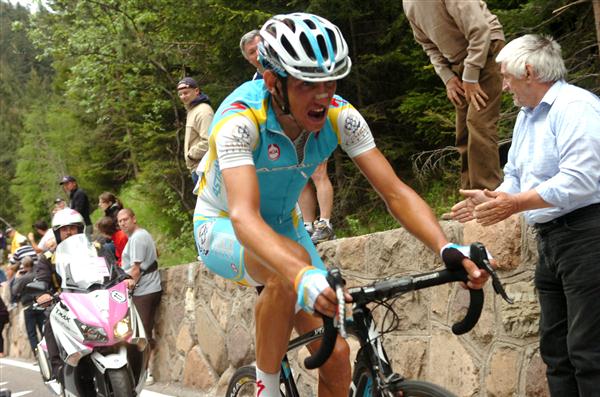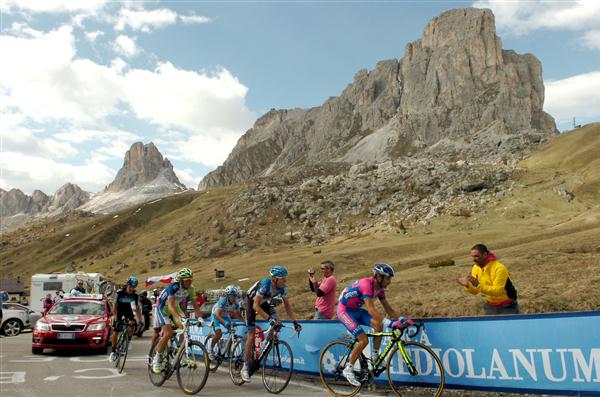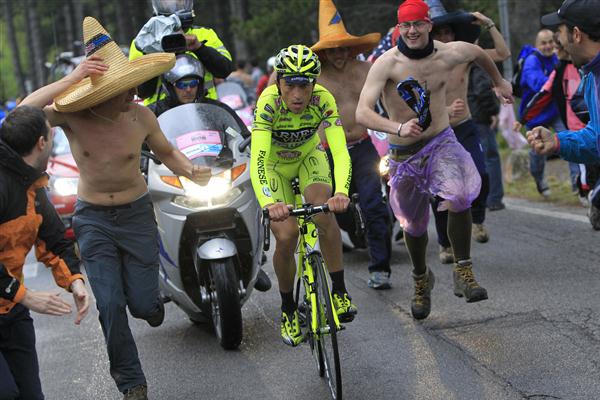Katusha debuted Canyon’s new Speedmax CF Evo time trial bike at the Giro d’Italia, where the squad secured a surprise second in team time trial to put Joaquim Rodriguez in prime position to assume the race lead six stages later.
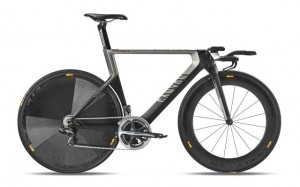
It was a superb result for the Russian-backed team, not renowned for their prowess against the clock and finishing just five seconds adrift of time trial specialists Garmin-Barracuda – and a fine debut for Canyon’s new TT machine.
The Canyon Speedmax CF Evo has been developed by a 10-strong team at the German manufacturer, before undergoing testing with Katusha’s time trial specialist Denis Mechov (who isn’t riding the Giro), with results showing that the Russian had to put out 270 watts to travel 47km/h, which represents an excellent power to speed ratio.
The frame uses what Canyon have called a Trident tube profile, which differs from the NACA (National Advisory Committee for Aeronautics) aerofoil profile found on many aero machine. How so? The Trident tubes curve at the front and end in a sharp angle. Canyon teamed up with Drag2Zero at the Mercedes GP wind tunnel at Silverstone to fine-tune the aerodynamics. Canyon’s tests show that the Speedmax CF Evo is 25 per cent more stable in crosswinds and 15 percent torsionally stiffer than the existing Speedmax CF.
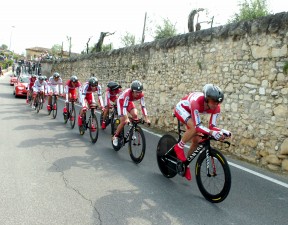
Canyon also reckon a rider aboard the Speedmax CF Evo can save 21 watts at 50/kph, according to tests on their prototype in a block headwind in the tunnel. That’s in part due to intergrated elements on the bike which help to reduce drag, namely the combined fork/handlebar/stem (which sits flush with the toptube), Canyon’s own brakes (the front is integrated behind the fork crown and the rear beneath the bottom bracket) and only 12cm of exposed cabling.
The Speedmax CF Evo, which is UCI-legal, comes in three sizes: small (54cm seat tube), medium (56cm) and large (58cm). Canyon say there are a remarkable 7,560 possible cockpit configurations, including a range of stems, flat or drop bars and three types of extensions.
As for spec, the machine will be available with Shimano Dura-Ace Di2 or Ultegra Di2, with the battery hidden inside the frame, while wheelset options will come in the form of Mavic, Reynolds or Zipp. Prices are expected to start at around €4,000, with the bike, which is from Canyon’s 2013 range, set to be available from mid-October.


